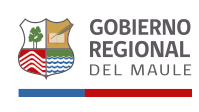Social innovation can play a role in closing learning gaps, encouraging work-spaces for co-creation, strengthening intercultural dialogue, and ultimately providing effective elements for our coexistence. For example, the data of CASEN 2015 establishes a picture of the needs for education, specifically in the rural sectors, where given their geographical characteristics, they are hindered from access to good public education.
However, there are also independent challenges regarding the geographical condition. These are mainly identified by the promotion of inclusion mechanisms for children with disabilities, and the generation of work-spaces that promote reading, participation, multicultural identity and community education. They also include the reduction of illiteracy, and the urgent need to enhance the development of soft skills in students.
The following are questions that encourage social innovation in the challenges:
- How can we narrow the educational gaps between the rural and urban sectors?
- How can we contribute to decreasing the illiteracy rate in the region?
- How do we develop educational processes that strengthen the territorial and multicultural identity?
- How can we improve the levels of educational inclusion for people affected by disability, immigrants and the elderly?
- How do we strengthen the educational communities, developing better practices in the teaching-learning processes?
- How do we promote the development of leadership skills, teamwork, self-management and self-learning in the children and young people of the public and subsidized educational establishments?
- How do we encourage reading comprehension, as well as the creative abilities of children through the use of educational technologies?










